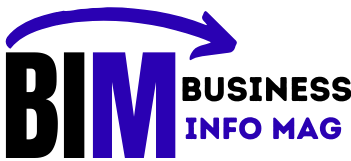As a business owner, you’re constantly looking for ways to improve your operations, increase revenue streams and stay ahead of the competition. That’s where commercial loans come in – offering financial support that could make all the difference in taking your business to new heights. Let’s get straight into it, and take a look at the benefits of business commercial loans and how they could transform your company’s fortunes.
Table of Contents
Introduction to Business Commercial Loans
A business commercial loan is a specific type of financing that can be used to help you grow your business. Unlike a personal loan from a bank, a commercial loan is designed specifically for businesses. This means that the interest rates and terms are usually more favorable for businesses than for individuals.
Commercial loans can be used for a variety of purposes, including expanding your business, buying new equipment, or even just paying off some high-interest debt. In most cases, you’ll need to put up some collateral (such as property or equipment) to get a commercial loan. However, there are also some unsecured options available if you don’t have any collateral to offer.
If you’re thinking about applying for a commercial loan, it’s important to understand the different types of loans that are available and what each one entails. Keep reading to learn more about the different types of business commercial loans and how they can benefit your company.
Benefits of Business Commercial Loans
If you’ve been in business for a while, you know that taking out a loan is sometimes necessary to help with cash flow or to make a large purchase. However, taking out a commercial loan can have even more benefits for your business. Here are some of the benefits of business commercial loans:
- You can use the loan for any business purpose.
- Commercial loans usually have lower interest rates than personal loans.
- The repayment terms are often more flexible than with other types of loans.
- You may be able to get a larger loan amount than you could with a personal loan.
- Taking out a commercial loan can help improve your business credit score.
- The application process is usually simpler and faster than for other types of loans.
Types of Business Commercial Loans Available
There are many types of commercial loans available to enterprises, each with its own unique set of terms, conditions, and repayment options. The most common types of business commercial loans are:
SBA 7(a) Loans:
These loans are guaranteed by the Small Business Administration and can be used for a variety of purposes, including working capital, equipment purchases, real estate financing, and more.
SBA 504 Loans:
These loans are also guaranteed by the Small Business Administration and can be used to finance the purchase of major fixed assets like real estate or machinery.
Bank Term Loans:
These loans are typically offered by banks and other financial institutions and can be used for a variety of purposes. repayment terms vary depending on the lender but typically range from 1-5 years.
Asset-Based Lending:
This type of loan is secured by collateral such as receivables, inventory, or machinery. This is typically a more expensive type of loan but can be helpful for businesses that do not have strong credit histories.
How to Choose the Right Loan for Your Business
There are a lot of different types of loans out there, and it can be tough to figure out which one is right for your business. Here are a few things to keep in mind when you’re trying to choose the right loan for your business:
1. What Are You Using The Loan For?
The first thing to consider is what you’re going to use the loan for. There are loans for all sorts of purposes, from buying inventory to expanding your business. Figure out what you need the loan for, and then look for a loan that’s designed for that purpose.
2. How Much Money Do You Need?
Another important consideration is how much money you need to borrow. You don’t want to borrow more than you need, because you’ll just have to pay interest on the extra money. But at the same time, you don’t want to borrow too little, because then you might not be able to get the things you need. Figure out a realistic amount that you’ll need, and then look for a loan that will give you that amount.
3. What’s The Interest Rate?
The interest rate is important because it will determine how much money you have to pay back in addition to the principal (the amount of money you borrowed). A higher interest rate means a higher monthly payment, so try to find a loan with a lower interest rate if possible. However, keep in mind that sometimes loans with lower interest rates have other restrictions, such as higher fees or shorter repayment terms.
4. How Long is The Loan Term?
The loan term is how long you’ll have to pay back the loan. A longer loan term means lower monthly payments, but it also means that you’ll be paying interest for a longer period of time. Try to find a balance between a reasonable monthly payment and a reasonable length of time to pay back the loan.
5. What are The Other Fees and Restrictions?
Finally, make sure to look into any other fees or restrictions that might come with the loan. Some loans have prepayment penalties or require collateral, for instance. Be sure to read all of the fine print before signing any paperwork so that you know exactly what you’re getting into.
Calculating the Cost of a Business Commercial Loan
One of the first things you’ll need to do when considering a business commercial loan is to calculate the cost of the loan. This will include the interest rate, any fees charged by the lender, and the length of time you’ll need to repay the loan.
The interest rate on a business commercial loan can vary depending on the type of lender you use and the amount of money you’re borrowing. It’s important to shop around and compare interest rates from different lenders before deciding on a loan.
Fees charged by lenders can also vary, so it’s important to ask about these before agreeing to a loan. Some common fees include an origination fee, which is charged by the lender for processing your loan; a closing fee, which covers the costs of paperwork and other administrative tasks associated with closing on your loan; and a late payment fee, which is charged if you miss a payment or make a late payment.
The length of time you’ll need to repay your business commercial loan will also vary depending on the lender and the amount you’re borrowing. Most loans are repaid over a period of two to five years, but some lenders may offer longer repayment terms.
Tips for Ensuring Success with a Business Commercial Loan
If you’re looking to take out a business commercial loan, there are a few things you can do to ensure success. First, be sure to do your research and shop around for the best loan terms. It’s also important to have a solid business plan in place before applying for a loan. This will give you a better chance of getting approved and securing the best interest rate.
Once you’ve found a lender you’re comfortable working with, be sure to carefully read over the loan agreement and ask any questions you have before signing. You’ll also want to make sure you have the financial ability to repay the loan on time and in full. By following these tips, you can increase your chances of getting approved for a business commercial loan and ensure its success.
Concluding Thoughts
Business commercial loans are a great way to boost efficiency and profits in your operation. With the right loan, you can purchase new equipment, hire more employees, or finance projects that will help your business succeed.
While there are risks associated with taking out any type of loan, commercial loans offer competitive rates and terms that make them an attractive option for businesses looking to expand their operations and increase their bottom line. Before taking out a commercial loan, be sure to research your options and choose the best lender for you.




